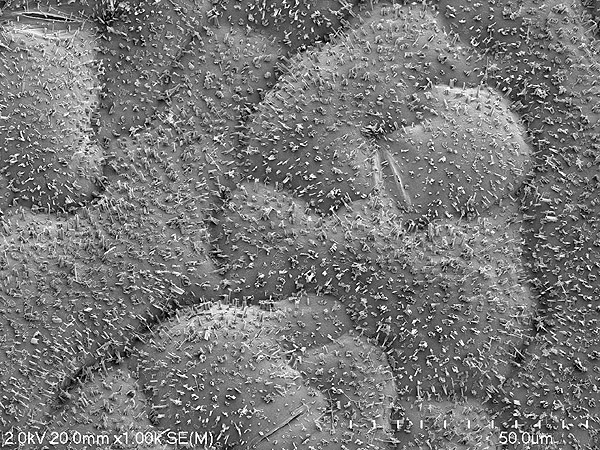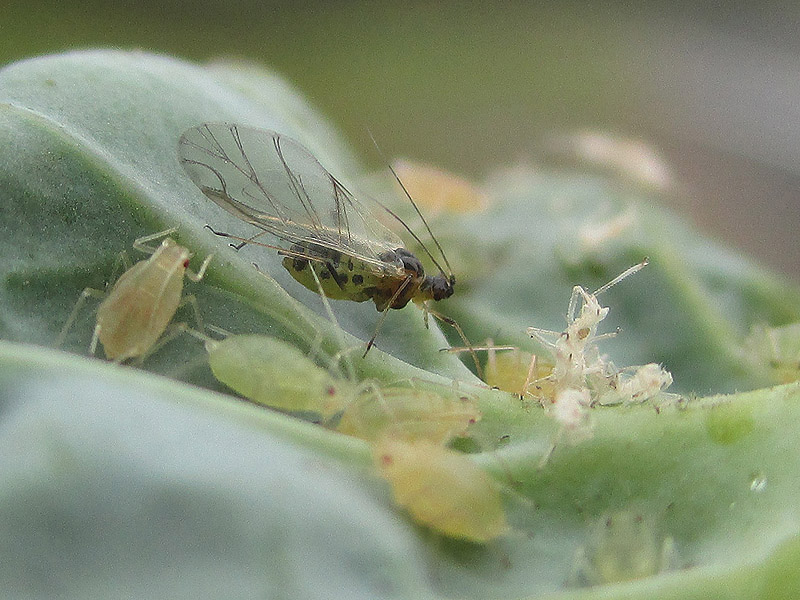
Good growth of oilseed rape crops over recent weeks now gives growers a better chance to target Plenum spray applications to control aphids that risk spreading TuYV.
Populations of Myzus Persicae (Peach Potato Aphid) are now widespread in oilseed rape crops, with research showing up to 70% could be carrying Turnip Yellows Virus (TuYV). Numbers of migrating winged aphids have continued to increase in national monitoring.
Syngenta application specialist, Ben Magri, highlighted that with many crops now at the four to five leaf growth stage, spray treatments can be better targeted to hit the leaf surface. With the waxy surface of young plants, lower water volumes have proven most successful in retaining spray on the target.
“For optimum results with Plenum we would advocate the use of angled nozzles and spraying at a water volume of 100 l/ha,” he advised. “Furthermore, our trials have shown the addition of a high quality methylated rapeseed oil in the tank mix can aid leaf coverage and spray retention on the surface.

“Where an agronomists’ advice calls for the inclusion of methylated rapeseed oil, make sure it’s added at the right concentration for the water volume. The correct adjuvants can be an important part of recommendations and can boost the amount of product sticking to leaves and pests,” he added.
Results of independent trials by Dr Alan Dewar, to assess control of Myzus and reduce the spread of TuYV, have reinforced the use of oil, and shown Plenum as the most effective available option for growers.
Dr Dewar’s trials showed Plenum with oil achieved the best results, with 83% control of Myzus five days after application, compared to less than 70% with thiacloprid and just 61% with flonicamid.

Plenum is especially valuable for autumn aphid control in OSR, since virtually all Myzus tested have proven resistant to the pyrethroid insecticides used in the past. Current advice is to treat as soon as Myzus are found in the crop, to reduce the risk of virus being spread. Plenum will provide up to two weeks control of further aphids migrating into the crop.
Ben Magri pointed out that with larger plants growers are going to have to pay greater attention to finding and identifying aphids in the crop. “On first impression plants often appear clear of classic aphids with wings, but closer inspection on the underside of leaves can reveal adults and nymphs,” he warned. “By that stage it could be at least two-weeks since initial aphid infestation, so there is a real risk that any virus foci in the crop could be transmitted to other plants.”
TuYV has been attributed as one of the major reasons that oilseed rape crops fail to reach their true potential. Without treatment, the HGCA has calculated annual yield losses from TuYV could be over 200,000 tonnes, costing the industry approximately £50m* a year, equating to nearly 10% of the total crop value.
*Recalculated to Sept 2014 crop value (£240/t); actual report £69m (£345/t)
